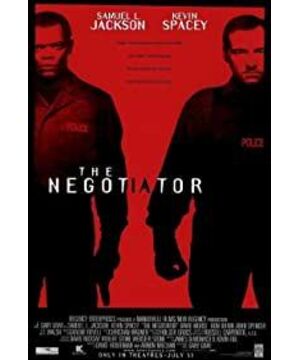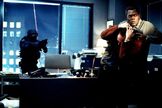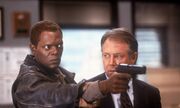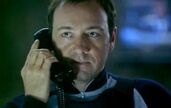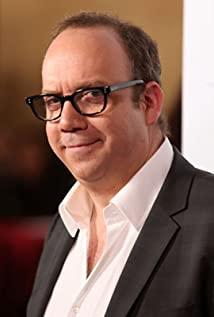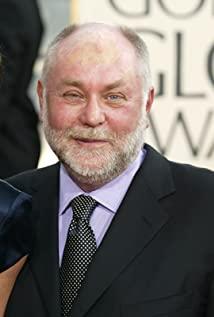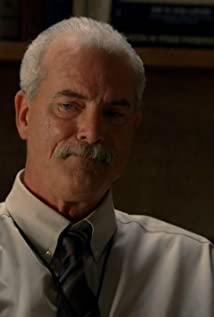Ace vs. Ace talks about Danny's innocence. During the whole contest, it appeared that Danny was taking hostages and asked the police to clear him. Chris tried to exchange hostages to find out the truth of the incident. In fact, Danny delayed the negotiation with the question of his innocence, and lured the police to reveal his motive for silence in public view.
This negotiation cannot be resolved peacefully because Danny's conditions will not be accepted by the police department. Danny has already been convicted, and the concession is not just an admission that the investigation was weak, but also that the police department admits that there is corruption and that innocent good people are framed in order to cover it up.
[Danny's perspective]
Danny knew that this incident was under pressure from the public and the FBI, and the police department had limited patience and would definitely take tough action as soon as possible. The negotiation and negotiation are just procedures. In order to buy himself time, Danny said that he let the outsider Chris come to the negotiation.
Chris, with 55 hours of negotiating experience, never made mistakes, and the name of the director made the director reverberate. Why was the Secretary surprised? Because it is not good for Danny to choose a famous negotiator, and if the incident can be resolved peacefully, the director's explanation to the public and the FBI after the event has room for change. No matter what Danny's purpose was, this kind of sincerity made the director's heart move.
For Danny, Chris is an outsider and sticks to his principles, always putting force at the end. Betting on the pride of a negotiator and insisting on principles to limit the police's use of force not only secures himself safety and more negotiation time to find evidence, but also brings psychological pressure to the police.
But Danny's real chance lies not with Chris, but with the hostage Nibong. Did Nibong participate in corruption? Can it be turned into a tainted witness? It is the key to determining Danny's innocence and life and death. If Nibon doesn't stand up, there is always a reason for the police to take action.
Danny makes a life-and-death gamble because he doesn't want to be separated from his new wife and go to jail because he believes he has more leverage. He is a blasting expert, a strategic expert and a negotiating expert, and he conducts three-line operations at the same time: negotiating with Chris to delay time, dividing the hostage camp to interrogate Nibon, and inducing and defending against police attacks. With these triple identities and three-step operations, the wrong one is a dead end.
[Chris's perspective]
Chris is here to complete the hostage rescue mission. On the way to the scene, Chris assesses the situation and events, listens and waits for the 20-minute time limit to come. Because he knows that there is no point in hurrying up without making a condition.
Chris summed up two questions, why choose him? Taking hostages to prove one's innocence won't work. As a negotiator, Danny should have a deep understanding of this. Why would he do this?
Danny didn't get to the point at first, and it was an invitation to fight for Chris. The negotiation does not have to be on the scene, Chris was listening on the way here, and Danny knew that Chris was listening, so he defeated Farley to show his strength, and also demonstrated to the police station, showing that it was him and Chris battle between. Chris saw through Danny's little trick. He deliberately delayed the call to the "time just right" in Danny's mouth, which meant that your provocation was successful, and I challenged it and was not afraid of it.
After Chris arrived at the scene, he and Danny had a quick and logical conversation on the negotiation principles of "don't say no" and "implying that there will be no tragic ending". This was a false move to test each other. To the right person, Chris strengthened his interest in fighting and successfully confused everyone present.
The police station in the circle was blank for a while, and it became Chris' answering machine, as if Chris was the top officer here. However, the police station quickly recalled that, because Danny offered to find the undercover condition, which was unacceptable, which made the police station understand that Danny did not recruit Chris for negotiation, but to delay time. So after Chris' hurried appearance, the police station, which wanted to regain control of the scene, launched a raid.
In Chris's furious questioning, the director admitted the failed command. When Chris asked for the command, the director obviously suppressed his anger (I am watching you). Here I not only admire the screenwriter's detailed characterization skills, Chris as a negotiator should have a very high emotional intelligence, but because he is proud And the dedicated dedication actually contradicts the director. The self-deprecating sentence in the first half of the film "I can persuade terrorists, but I can't coax my wife and daughter" very echoes.
[Danny's perspective]
The raid led to Danny's tough response. Otherwise, once the police station determines that he will not really endanger the hostages, it is bound to replace the negotiation with force.
Danny exposes the police raid to the public, citing selfish disregard for the safety of the hostages as an excuse to block further police operations. Facing the gentle voice of his wife, Danny pretends to kill the hostage and refuses to respond, emphasizing his position with silence.
With the silence of both sides, Danny continued to interrogate Nibon. From the beginning of taking hostages, Danny has been carrying out the work of dividing the hostage camp. Now that a hostage is executed, the selfish and speculative informant Rudy and the sensitive and unstable Maggie play a role in security pressure and tolerance. Down has fallen to Danny.
[Chris's perspective]
In order to regain the dominance of the negotiation, Chris repeatedly interrupted and refused to respond to avoid Danny's use of the topic, and at the same time responded to Danny's willingness to negotiate with practical actions. Chris raised his gun and rebuked "don't hurt the hostage or attack" successfully turned a crisis of reckless action into his own advantage, and Danny's sincerity by exposing his body to the gun also made Chris' innocence to Danny. Really got interested.
After bringing back a hostage, the police department proposed a contingency plan for the raid, and Chris agreed.
[Danny's perspective]
Danny and Chris re-established the negotiation and exchanged the hostage Fausti, which was a win-win. Foster was important to the police department, but not to Danny. The cunning Fosti stays at the hostage scene and will neither fall on Danny nor admit his guilt, and may expose Danny's strategic intentions.
With the help of the frontal hostage, Danny found an important clue and asked Chris to bring the undercover.
[Chris's perspective]
Chris did find an undercover agent, but he brought back a fake undercover agent. Because objectively, undercover doesn't exist, and Chris doesn't know if Danny is lying to stall the time. If Danny lied, then after Chris brought back the fake undercover agent, Danny would have to cooperate in order to complete the lie without knowing the truth. Lies cannot withstand more than two weaving, and Chris can take the opportunity to build more Advantage. If Danny hadn't lied, then the fake undercover agent would have been exposed, because Chris's lies also couldn't withstand more than two weavings. In any case, this is not a disadvantage for Chris, and finding out whether Danny is lying is the key to the negotiation.
[Danny's perspective]
Discovering the fake undercover is very thrilling, because Rudy finds the truth in the file that the undercover is dead, and Danny doesn't know it.
But the hoax also reminded Danny that he released the hoax of Nibang's confession, mainly using false clues to put pressure on Nibang and the police at the same time, so that Nibang could tell the truth. As for the police attacking and killing Nibang, it was inevitable .
The half-truths caused the entire police station to fall into a brief silence, and the police acted without authorization to explain the problem more directly. Here you can observe the reactions of Commander Baker and Chief Trevors. First of all, Baker was ashamed and did not dare to look at Chris, but Baker still insisted on the self-determination of the police force and tried to cover up the corruption problem. Chief Trevors also supported Baker. After all, the FBI was watching the development from the side. In fact, everyone knew it at this time.
The fundamental attitude of the police department is to eliminate public influence as soon as possible and avoid the FBI's involvement. The police took action and made Commander Baker and the director feel that the scene was getting out of control, and it was no longer necessary to continue the negotiation. Whether it's to clear things up or protect Danny, it's imperative that the force of justice intervene.
Chris's insistence on negotiating at this time is indeed the right approach. At this time, don't move anyone. Who the evil police is will soon be revealed. But the FBI didn't come to the show, and the police didn't want to solve it on the spot, and Chris's accusation was a little out of his mind. His accusation directly led him to stand against everyone, which led to the cooperation between the FBI and the police department, and he was dismissed from the scene. .
This negotiator with 55 hours of successful negotiation experience is not able to judge the situation, grasp the interpersonal relationship, and even rushed into the hostage scene alone when the situation is unclear. This is the most dramatic aspect of the entire negotiation drama.
After the film, there is nothing worth reading. There are two possible interpretations of Commander Baker's motive for keeping Foster's life. He is very righteous or he wants to make meritorious deeds, eradicate corruption, and improve the image of the police station. The two do not conflict.
View more about The Negotiator reviews


